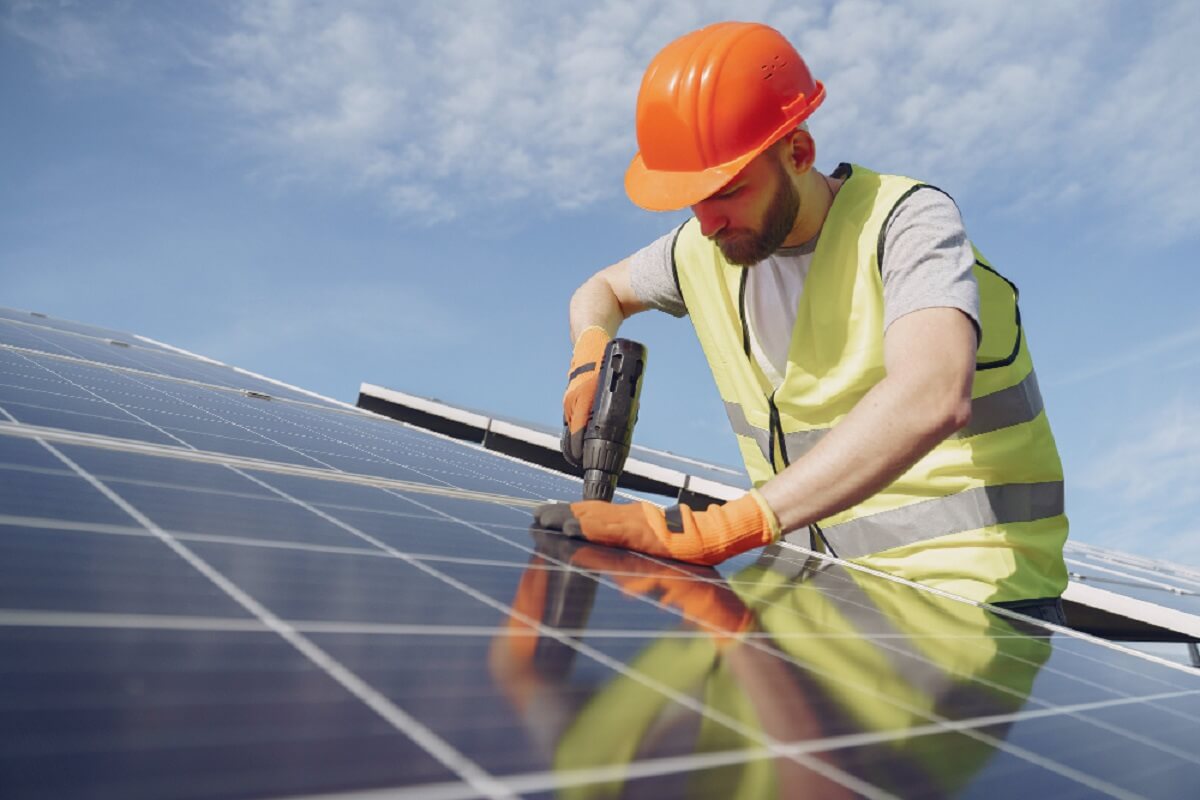Solar power has emerged as a shining beacon of hope for residential and industrial complexes across the United Kingdom In the quest for cleaner, cheaper, and more reliable energy sources.
However, this vision is not universally shared; many local regions still grapple with the challenge of connecting to the primary power grid. Enter large-scale solar farms. These expansive energy plants support rural development and fortify the nation’s energy security. But how, exactly, do they benefit local regions? The answers lie within this post.
What Exactly Are Large-Scale Solar Farms?
Large-scale solar farms comprise fields of photovoltaic (PV) panels basking in the sun, which convert heat from the sun into sustainable electricity. They produce electricity not from fossil fuels but from the steady, unwavering gleam of sunlight.
More often than not, these mammoth energy generators are interlinked with the national grid to distribute clean, renewable power to countless homes and businesses. The size and energy-generating capacity of these solar farms may vary, but to be considered large-scale, a solar farm has to clock in at over 50 MW of installed capacity in England and a whopping 100 MW in Scotland and Wales.
These colossal projects are subject to special regulatory procedures governed by the Planning Act of 2008, and their development approval falls under the jurisdiction of the Secretary of State.
Large-scale solar farms have several advantages over smaller or rooftop solar systems. These Include:
- Increased Efficiency and Output: Large-scale solar farms leverage advanced technology, optimised panel orientation, and impeccable spacing to maximise solar energy capture. Economies of scale also come into play, reducing maintenance costs per unit of electricity generated.
- Minimal Environmental Footprint: These sprawling units are carefully planned to minimise visual impact on the serene rural landscape. They often sidestep agricultural land or sensitive habitats, instead using brownfield sites, industrial roofs, or former landfill areas.
- Climate Change Mitigation: Large-scale solar farms eliminate greenhouse gas emissions by reducing dependence on fossil fuel-based electricity generation. They can also support the integration of renewable energy sources, such as wind and hydro, by providing a more stable and predictable output.
How Large-Scale Solar Farms Benefit Remote Regions
Remote areas have long grappled with energy security issues and the relentless rise in electricity prices. However, the entrance of large-scale solar farms has transformed this narrative. Other than electricity generation, large-scale solar has sowed the seeds of a better future in remote municipalities by providing:
- Better Energy Security: Large-scale solar farms empower local regions with the ability to generate their energy, liberating them from costly, unreliable grid connections. This newfound autonomy grants them resilience against power outages and price fluctuations.
- Low-Cost Electricity: The large-scale solar giants offer competitive pricing to traditional grid power through long-term contracts and subsidies, pushing electricity costs down for local regions.
- Economic Development: Large-scale solar farms bring more than just clean energy; they provide jobs and income during construction and operation. They spur local investment and innovation, drawing new businesses and industries looking to utilise renewable energy and reduce their carbon footprint.
Furthermore, they foster social unity and empowerment by involving local communities in the planning and sometimes ownership of projects.
Read Also: Why Are Batteries Used in Solar Power Systems?
A Case Study: Cleve Hill Solar Park
One remarkable example of a large-scale solar farm with a mission to uplift a local region is the Cleve Hill Solar Park in Kent. The project secured development consent from the Secretary of State in May 2020 and is slated to be operational by 2023. With a colossal capacity of 350 MW, it ranks as the largest solar farm in the UK and one of the largest in Europe.
The Cleve Hill Solar Park promises an array of benefits for the local area, including:
- Powering Over 90,000 Homes: An annual energy yield sufficient to power over 90,000 homes, equivalent to 65% of the households in the Swale Borough Council.
- Emission Reduction: The project’s environmental impact is positively monumental, curbing approximately 68,000 tonnes of carbon dioxide emissions each year, the equivalent of taking 27,000 cars off the road.
- Job Creation: Cleve Hill Solar Park is expected to generate up to 700 jobs during the construction phase, and the operation phase is set to sustain approximately 20 permanent jobs.
- Ecosystem Preservation: This enormous solar farm is not just about energy; it’s also about biodiversity. It contributes to local wildlife by creating new habitats and enhancing those already in the area.
- Community Support: The project will contribute £1 million annually to a community benefit fund, funding local initiatives and projects.
Conclusion
Large-scale solar farms are crucial components of the UK’s renewable energy mix, illuminating homes and businesses with clean, reliable, and affordable electricity. More importantly, they are beacons of hope for local regions, fortifying their energy security, reducing electricity costs, and kindling economic development.
Are you looking to install solar panels for your personal or business energy consumption? Solar Co is your go-to solar energy provider in the UK, providing everything from Solar panels to batteries and PV immersion controllers.
